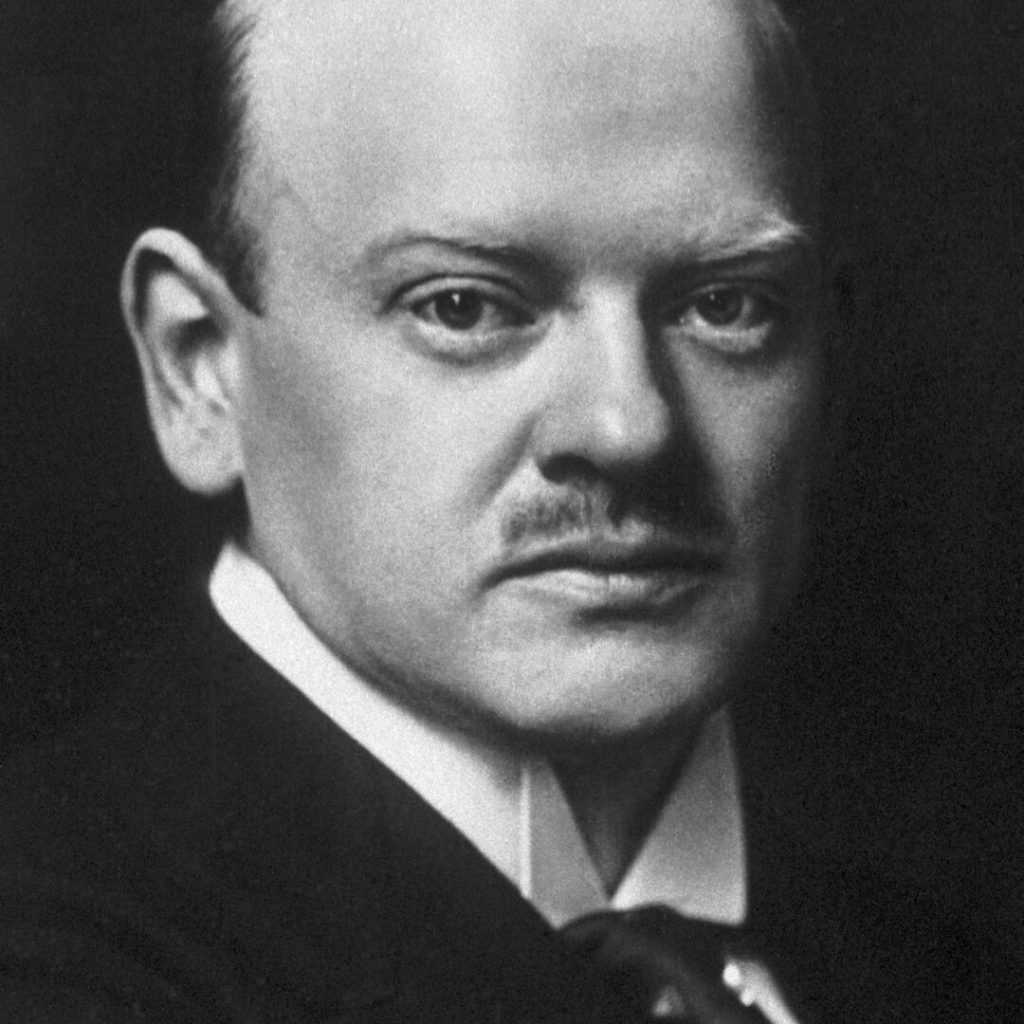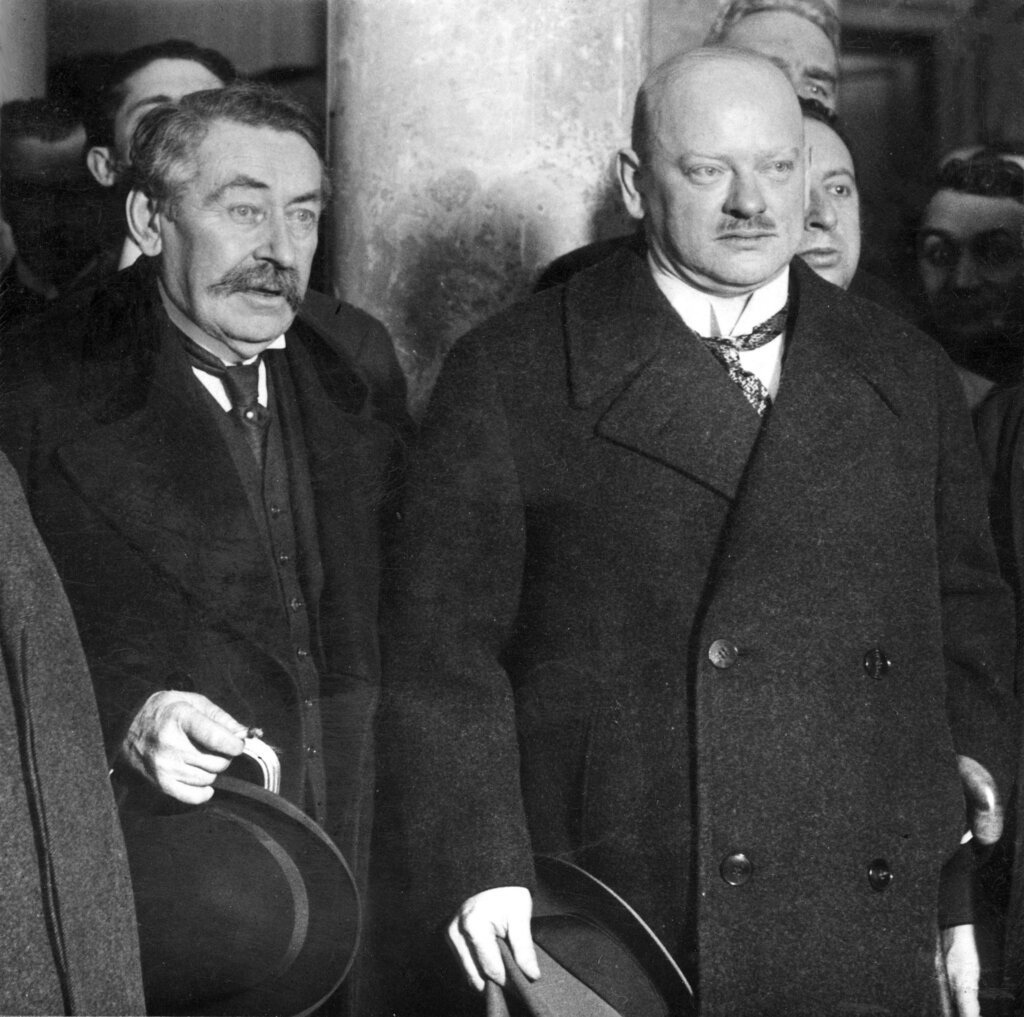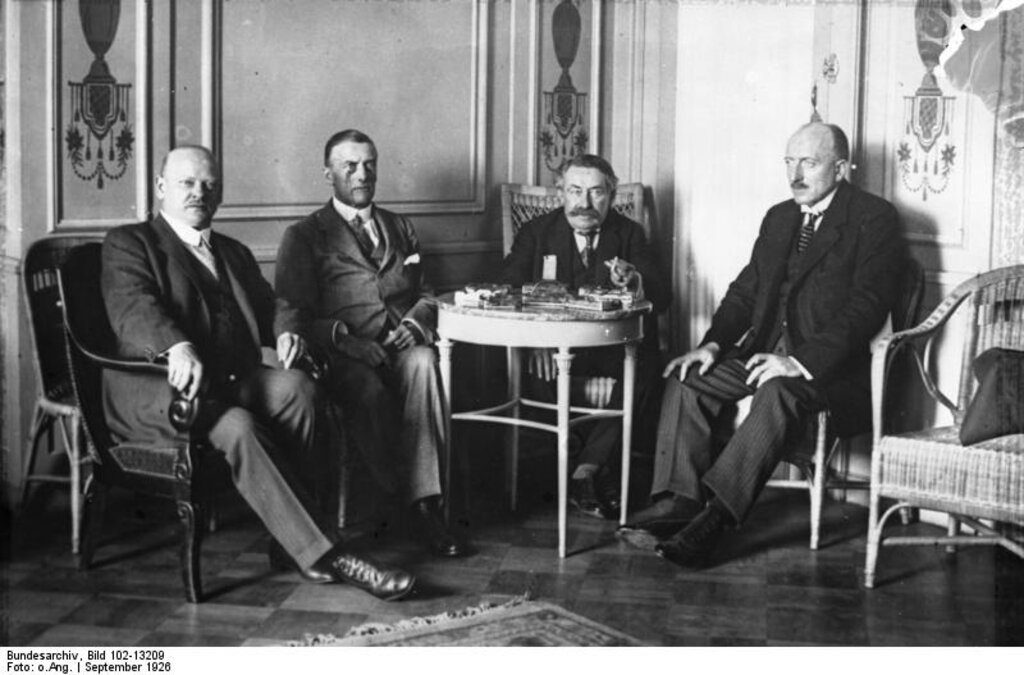Gustav Stresemann
Speed read
Gustav Stresemann was awarded the Nobel Peace Prize, jointly with Astride Briand, for his crucial role in negotiating the Locarno Treaty.

Full name: Gustav Stresemann
Born: 10 May 1878, Berlin, Germany
Died: 3 October 1929, Berlin, Germany
Date awarded: 10 December 1926
Reconciliation with France
Gustav Stresemann shared the Nobel Peace Prize with French Foreign Minister Aristide Briand for their joint efforts on the reconciliation agreement signed between the two countries in the Swiss city of Locarno in 1925. Stresemann was a fervent nationalist who advocated a “place in the sun” for Germany. During WWI, he supported a German campaign to seize land from neighbouring countries, but when defeat seemed imminent, he encouraged Germany to seek peace. Stresemann was distressed over the severe terms set for Germany during peace negotiations in 1919, but he opposed sabotaging the treaty. He served as prime minister for a short time, after which he was appointed foreign minister. It was in this role that he took the initiative to launch reconciliation talks with France.
”The great men of a nation reach out to all mankind. They are unifying, not divisive; internationally conciliating and still great nationally.”
Gustav Stresemann, Nobel Prize lecture, 29 June 1927.

Gustav Stresemann as an ardent nationalist
When WWI broke out in 1914, a heart condition prevented Stresemann from enlisting in the military. As a member of the Reichstag, he supported an uncompromising military campaign by Germany, including a submarine offensive against all commercial ships carrying goods to German opponents, regardless of nationality. To fulfil his dream of a grand German “Mitteleuropa,” Stresemann believed that Germany should annex the entire country of Belgium as well coastal cities in France and the Baltic countries to the east. He also supported the expansion of the German colonial empire in Africa.
”The Locarno Pacts, together with Germany’s entry into the League of Nations and the speeches which followed it, hold much promise for the future – they all tend to build up confidence and the will to carry on the good work.”
Fridtjof Nansen, Presentation speech, 10 December 1926.
Stresemann as peacebuilder
Germany lost WWI, and Stresemann understood that if his country were ever to be allowed to become a world power again, the Germans would have to calm French fears of revanchist thinking. Germany had to regain the trust of French politicians to prevent France from building a military alliance against the Germans and ostracising them from the international community. As foreign minister, Stresemann contacted his colleagues in Great Britain and France, Austen Chamberlain and Aristide Briand. His initiative led to German membership in the League of Nations. New hope for a peaceful Europe was sown.

”Even more remarkable was the universal recognition outside Germany that in him passed away the greatest German since Bismarck.”
Austen Chamberlain, Down the Years, page 172, Casell 1935.
Learn more
Gustav Stresemann was the son of a prosperous owner of a restaurant and tavern. In his early years he helped in the family business and, since he was a lonely boy, assiduously pursued his studies ...
Disclaimer: Every effort has been made by the publisher to credit organisations and individuals with regard to the supply of photographs. Please notify the publishers regarding corrections.
Nobel Prizes and laureates
Six prizes were awarded for achievements that have conferred the greatest benefit to humankind. The 12 laureates' work and discoveries range from proteins' structures and machine learning to fighting for a world free of nuclear weapons.
See them all presented here.
